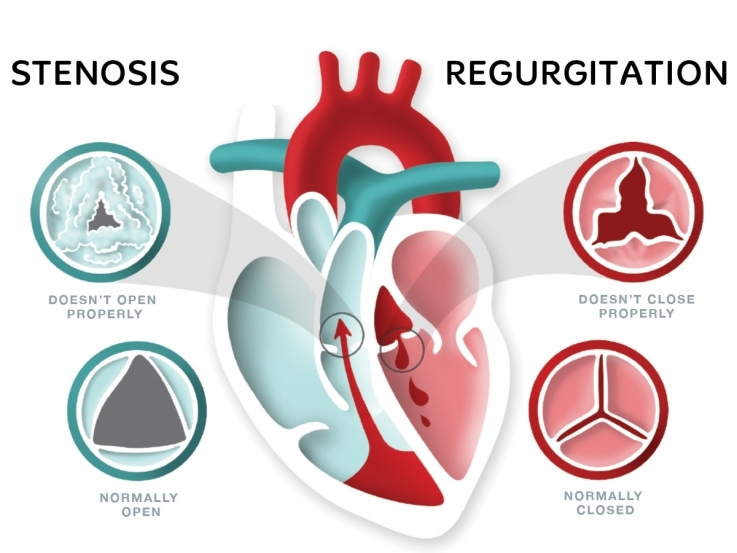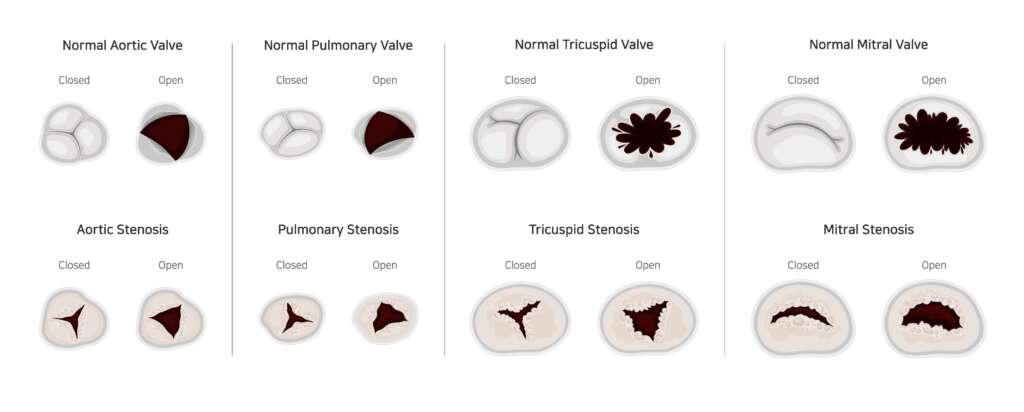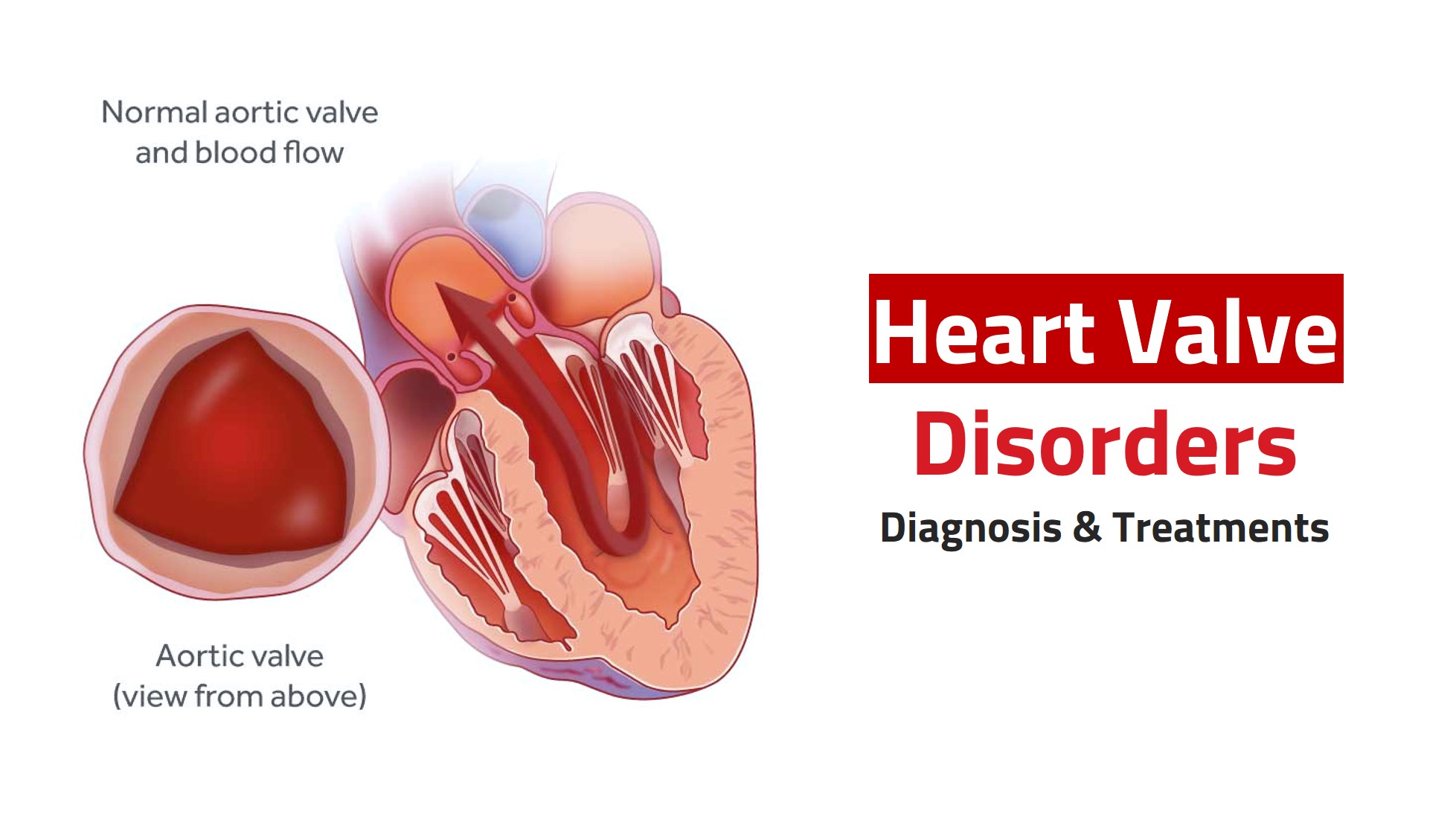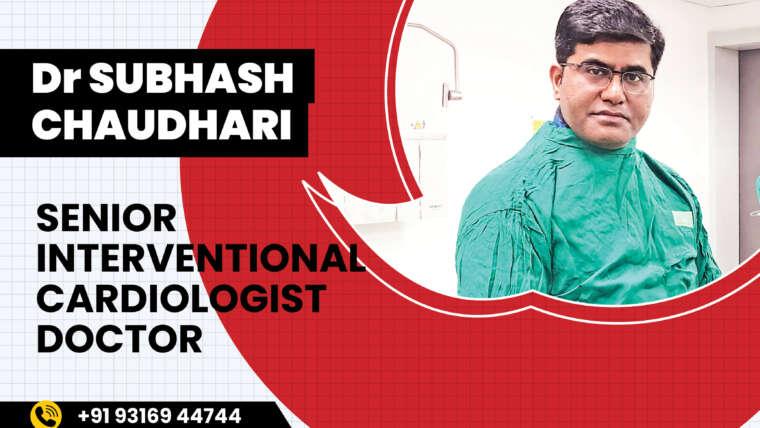What is heart valve disorder or heart valve condition?
When heart valves do not work properly the way they should, the condition is called heart valve disorder. Left untreated, heart valve disease can reduce the quality of life and become life-threatening.
Heart has four valves that keep blood flowing in correct direction. In some cases, one or more valves do not open or close properly causing the blood flow through heart to be interrupted.
Types of heart valve disoders

Valvular Stenosis
This occurs when a heart valve doesn’t fully open due to stiff or fused leaflets. The narrowed opening may make the heart work very hard to pump blood through it.
Valvular Insufficiency (Regurgitation)
If the valves do not seal, some blood will leak backwards across the valve. As the leak worsens, the heart has to work harder to make up for the leaky valve.
There are specific names given to the condition depending on which valve is leaking.

Your heart valve disease treatment depends on the disease type, heart valve affected and the types of severity of the valve disease. Based on the conditions, your cardiologist suggests treatment for repair or replace heart valve.
Heart Valve Disease Symptoms
Symptoms of heart valve disorders vary depending on the severity of the disorder. However, signs and symptoms may include:
- shortness of breath
- heart palpitations
- fatigue
- chest pain
- dizziness
- fainting
- headaches
- a cough
- water retention, which can cause swelling in the lower extremities and abdomen
- pulmonary edema, which is caused by excess fluid in the lungs
Heart Valve Disease Diagnosis
Your cardiologist will evaluate your signs and symptoms and may conduct a physical examination. Doctor will listen to your heart murmur as this can be a sign of a heart valve condition. There are several tests to diagnose this condition further. Tests may include:
Echocardiography
Electrocardiogram (ECG)
Chest X-ray
Cardiac MRI
Exercise test or Stress test
Cardiac Catheterization
Heart Valve Disease Treatment
Heart valves disease treatment depends on how severe your condition is. The consulting doctor may monitor your conditions with regular follow-up appointments. You may also be recommended to make a healthy lifestyle choices and take medications regularly.
You may eventually need a heart valve surgery to repair or replace the diseased heart valve. Balloon valvuloplasty (also called valvulotomy or valvotomy) is a procedure that widens a heart valve that is narrowed. The cause of this narrowing in the aortic valve is aortic valve stenosis.
What is the outlook for people with heart valve disorders?
Your outlook will depend on what heart valve disorder you have and how severe it is. Some heart valve disorders only require routine monitoring, while others repair or replacement.
Talk to your cardiologist nearby about any symptoms you have that you’re concerned about, and make sure you schedule routine checkups with your doctor. This will make it more likely that your doctor will discover any potentially serious conditions in the early stages.
For heart valve disease treatment in Ahmedabad, you can consult Dr. Subhash Chaudhari at Sarthak Heart Care Clinic – Senior Interventional Cardiologist in Ahmedabad.




